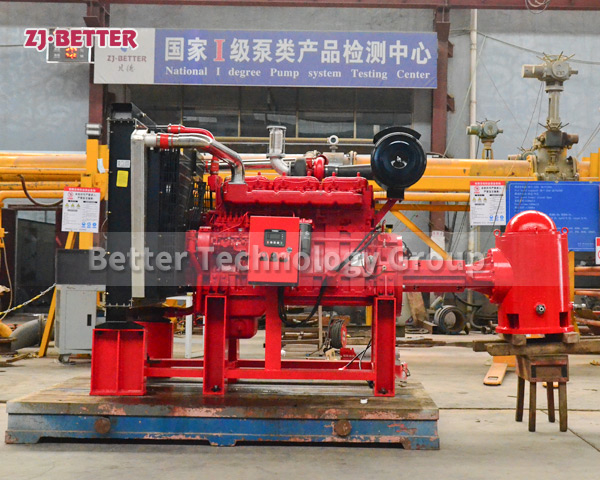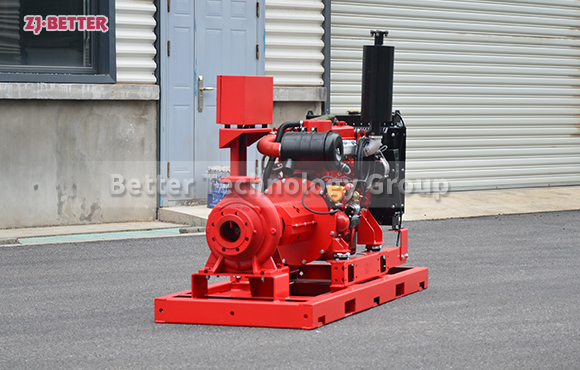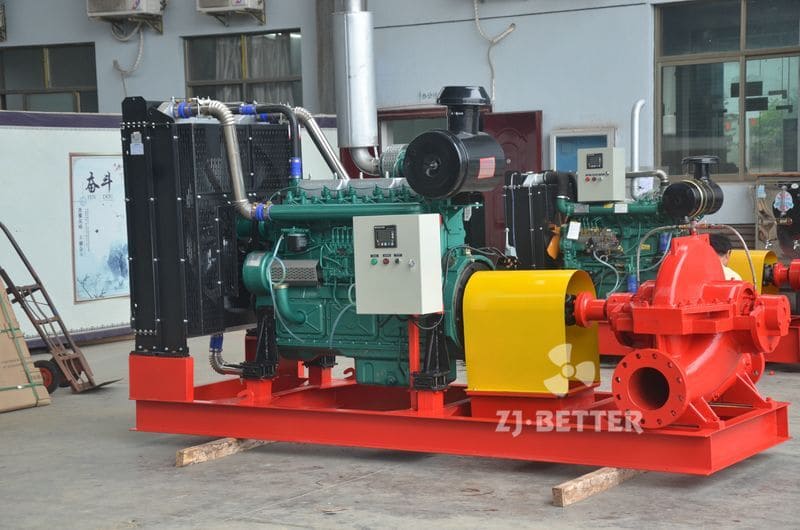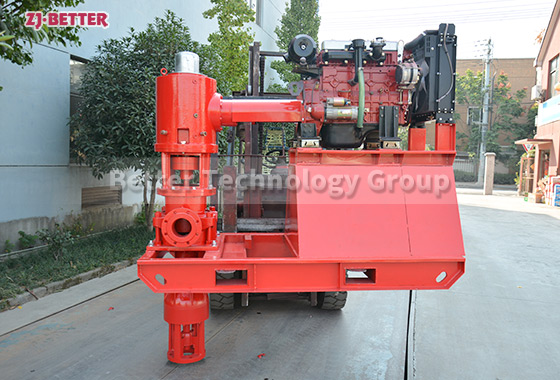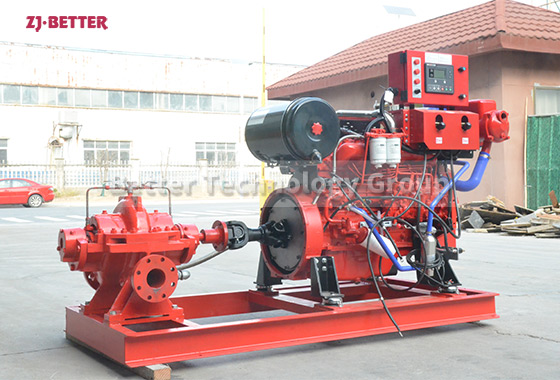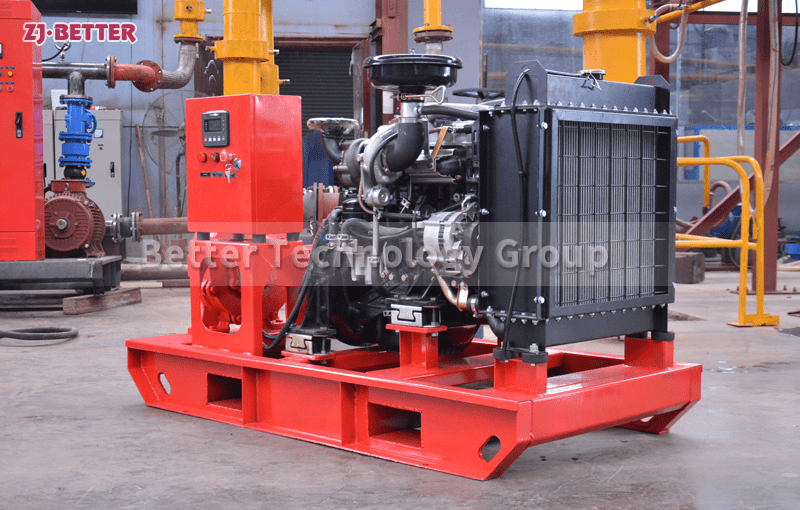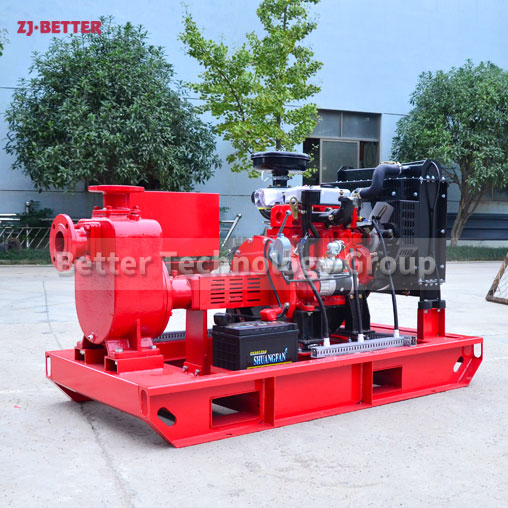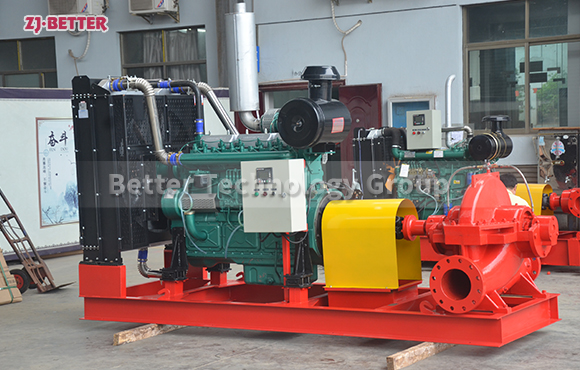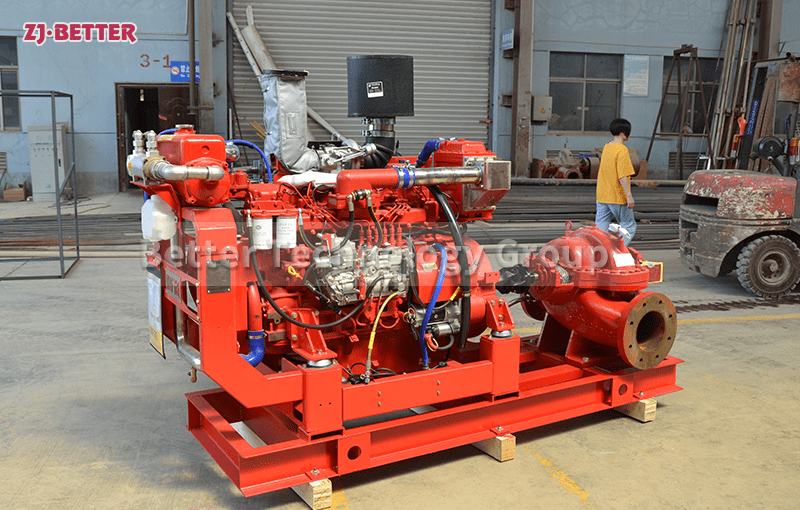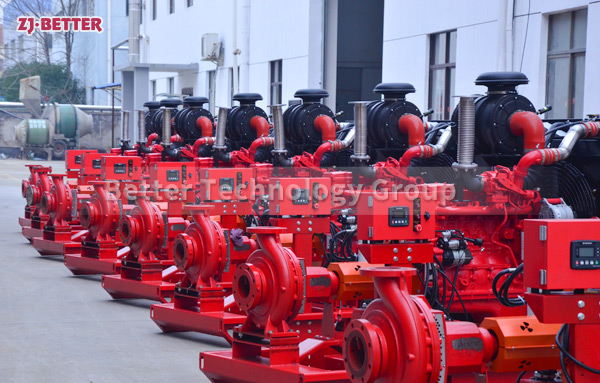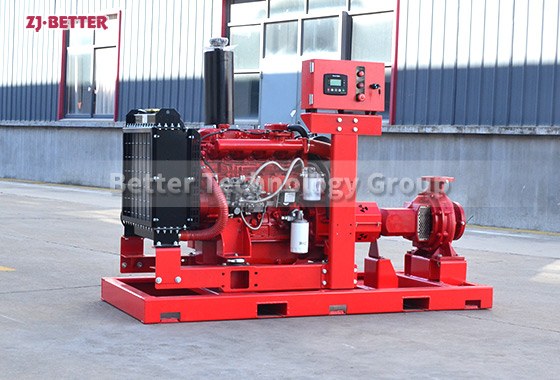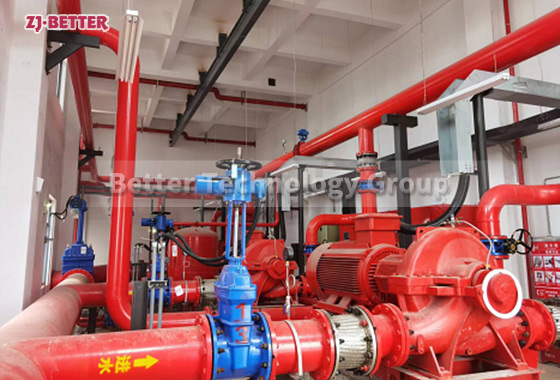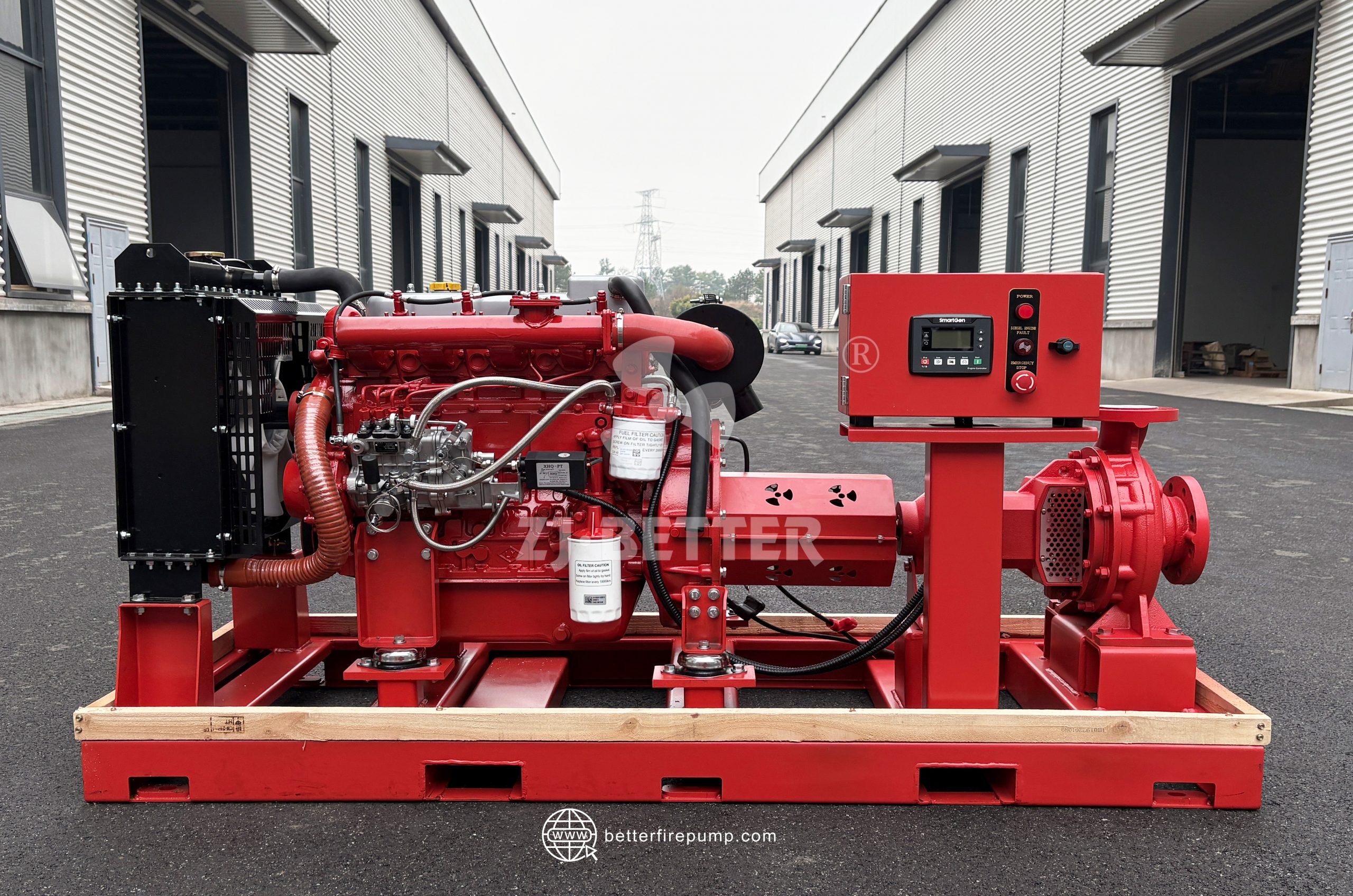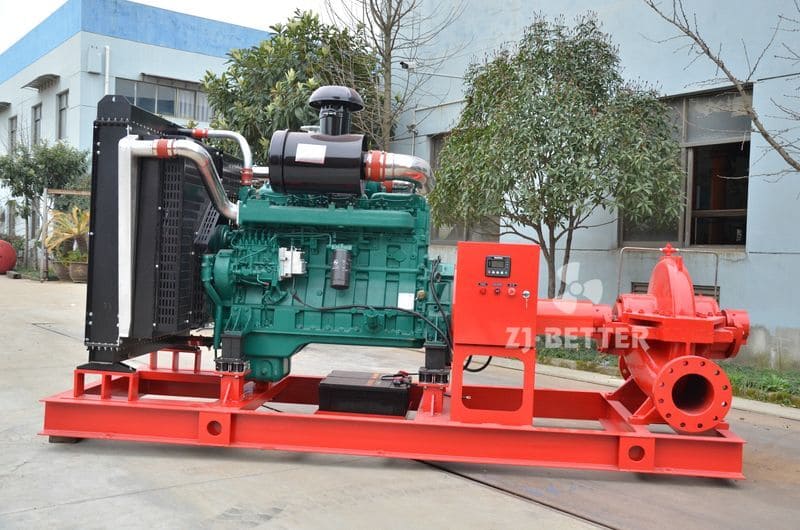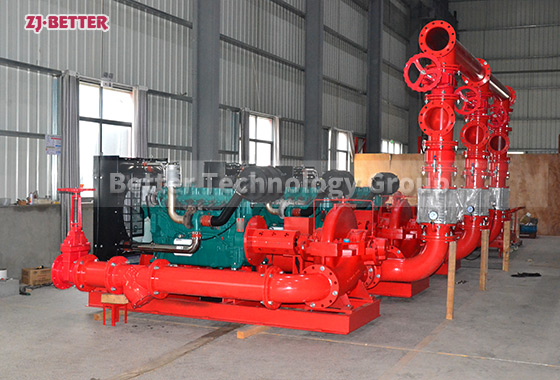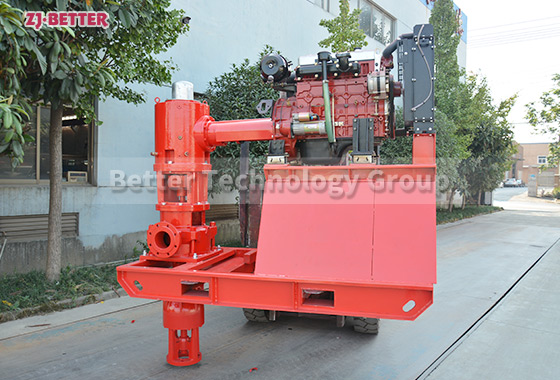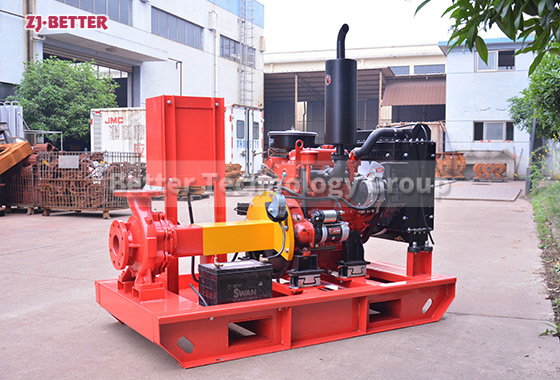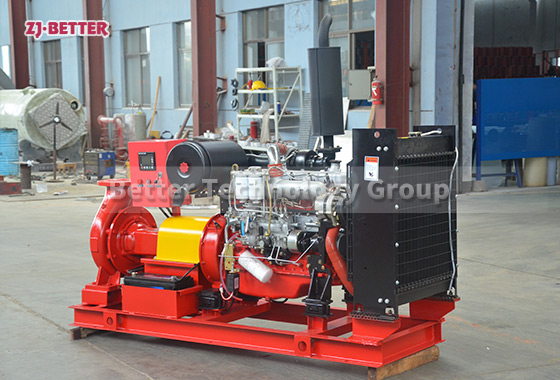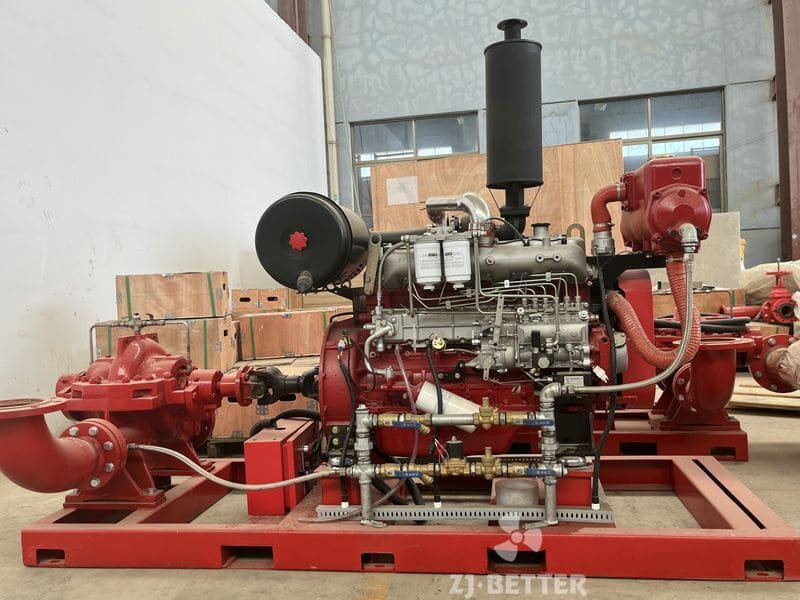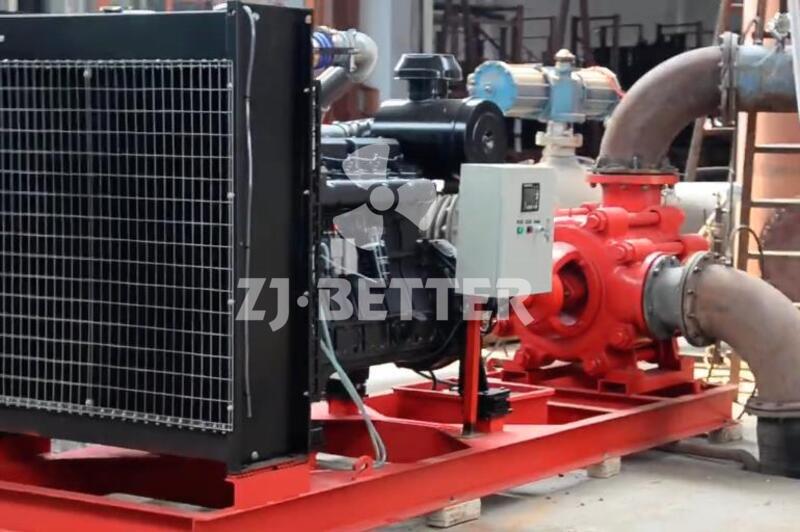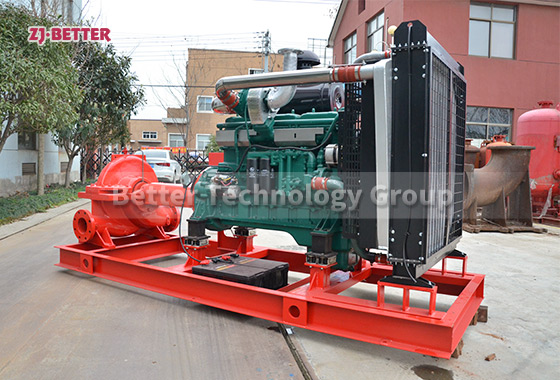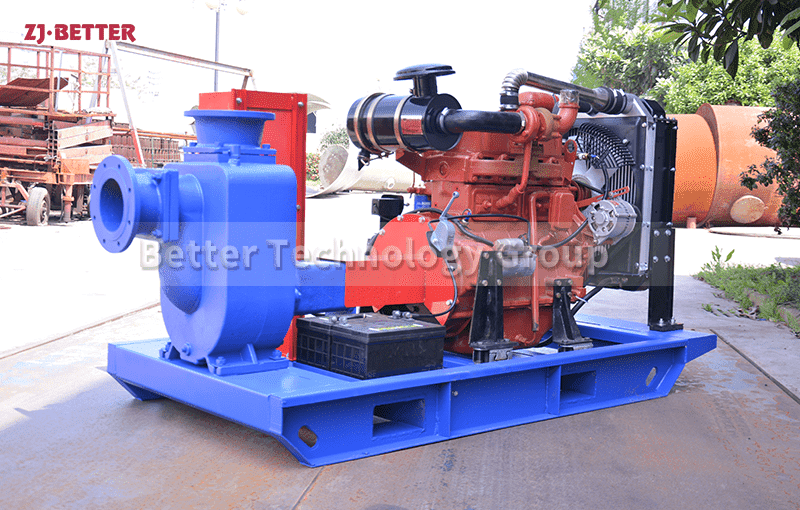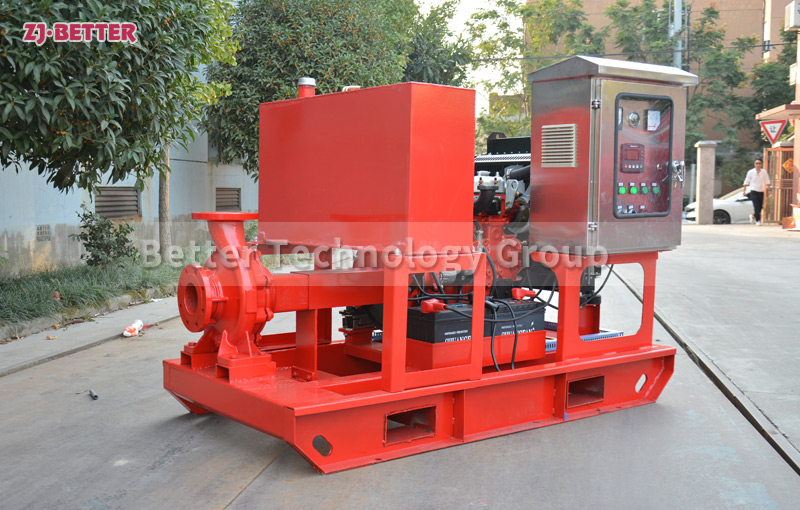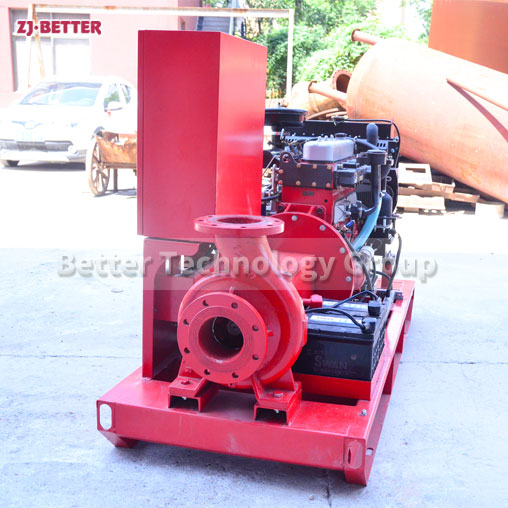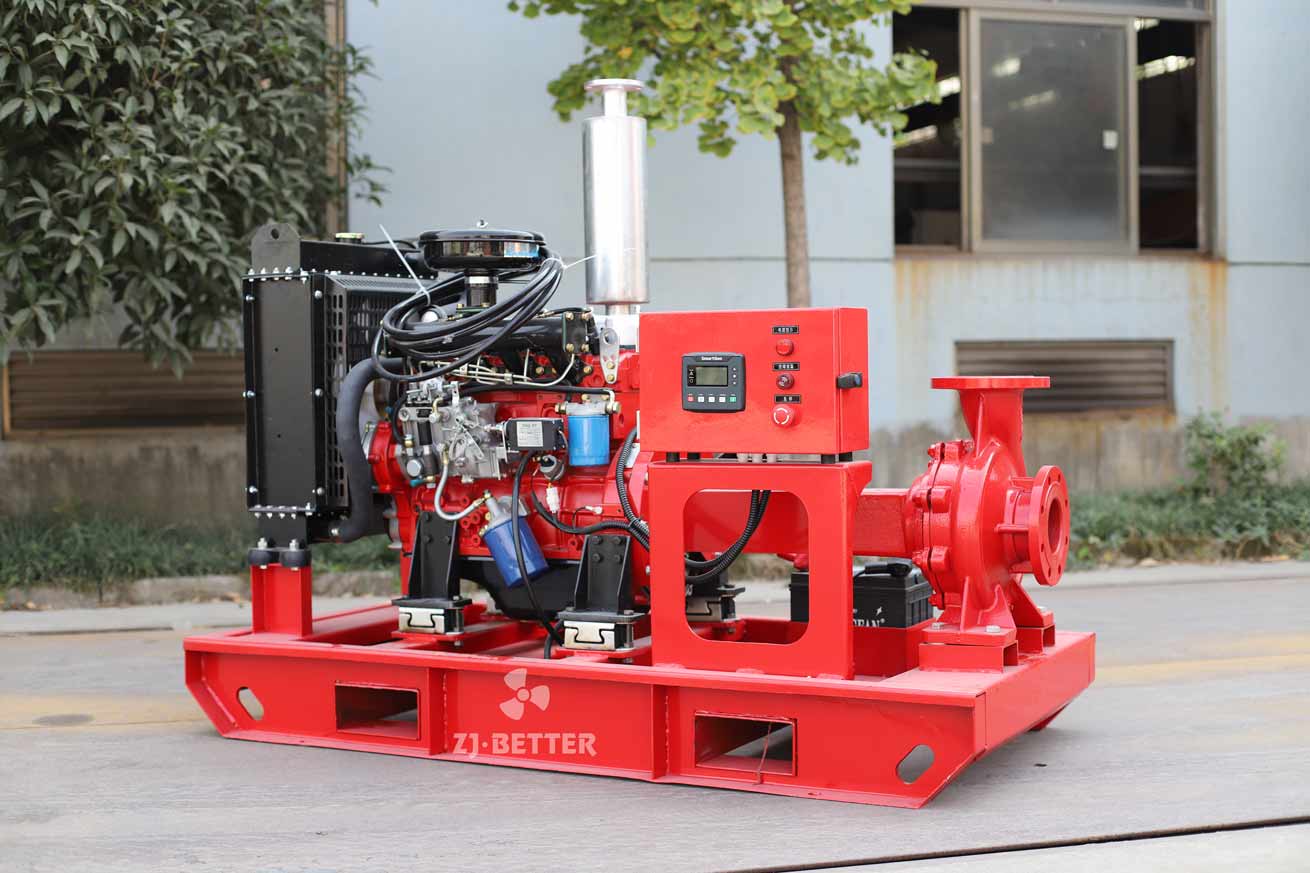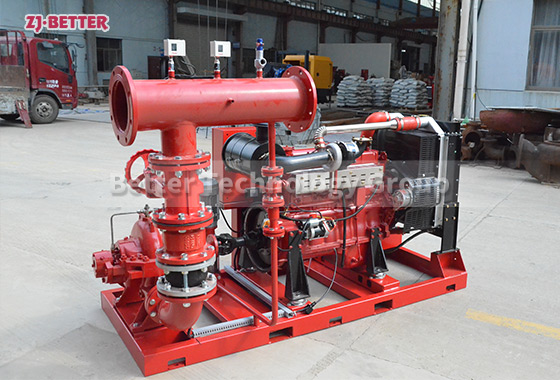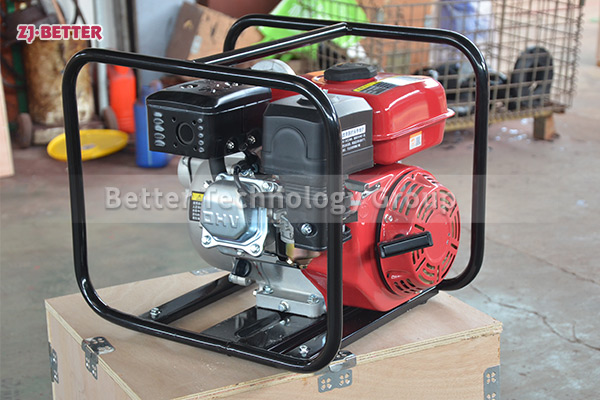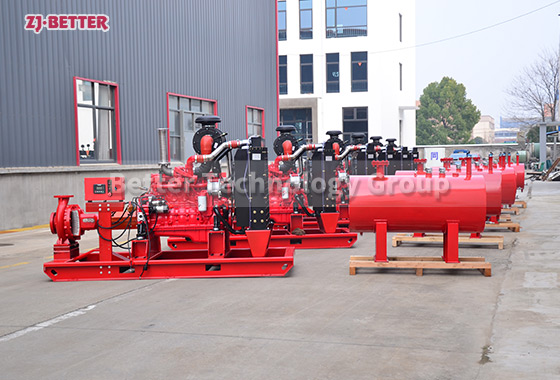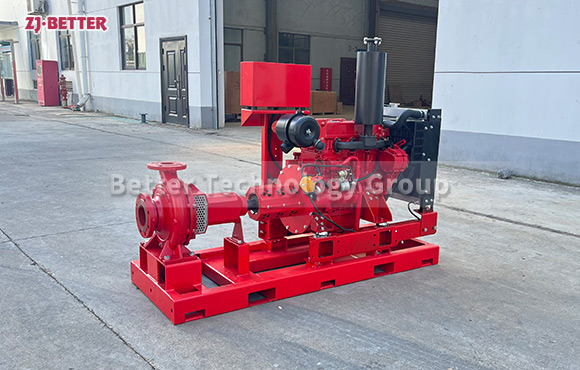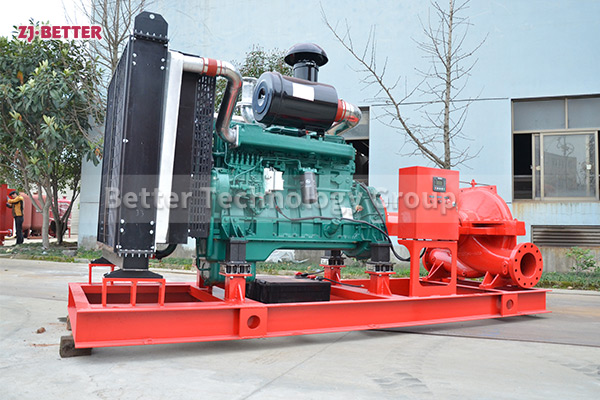Diesel engine fire pump set can meet various occasions
The diesel engine fire pump set is a medium and low pressure fire pump product developed by our company in strict accordance with the technical requirements of the national standard GB6245-2006 (fire pump) and the National Fire Protection Association NFPA20 (installation of centrifugal fire pumps). The product has passed the type inspection of the National Fixed Fire Extinguishing System and Refractory Component Quality Inspection Center.
Since the diesel engine fire pump set is not limited by the power supply when equipped with a diesel engine power pump set, it can better provide safety guarantee for fire emergency. At the same time, the speed regulation function of the diesel engine makes the use and performance of the unit equipment more extensive, and the adjustable performance of pressure and flow is further improved. Equipped with well-known brand components at home and abroad, the usability and safety of the pump set are reliably guaranteed. It can fully meet various occasions of industrial and mining enterprises such as warehouses, docks, airports, petrochemicals, power plants, liquefied gas stations, and textiles.

